Chronicle
Today, the DPG is the physical society with the largest number of members in the world. It emerged from an initiative of six young scientists in Berlin in 1845. They wanted to go beyond the colloquium with Professor Gustav Magnus to deal with the latest physical investigations and make this possible for other interested persons by founding a public society. In the following 175 years, the Physical Society grew. The most important stations and caesura of its history, which not only includes glorious times, can be traced here from today until 1845.
-
14. January 2020
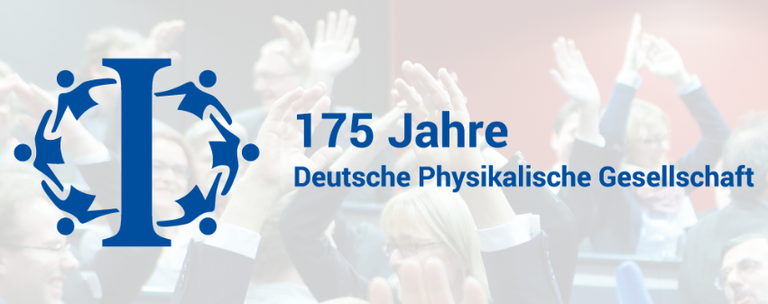
175th anniversary
On 14 January 2020, the DPG celebrates its 175th anniversary with a kick-off event in the Magnus-Haus Berlin. Numerous events and activities will take place under the motto "Physics in and for society". The year is structured by four quarterly topics: Physics as a Knowledge of Nature, Physics and Education, Physics and Information and Climate and Energy.
⇒ Anniversary film: 175 years German Physical Society -
23. September 2019
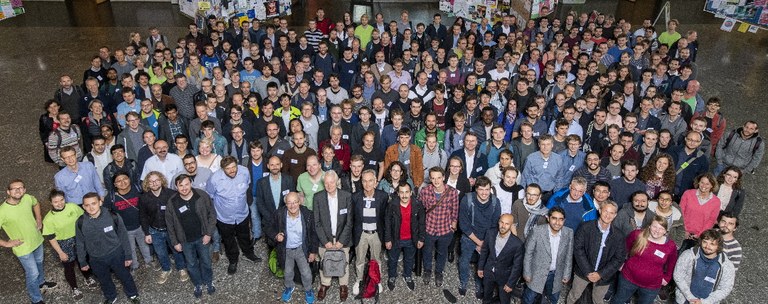
© DPG / Seeger 2019
DPG Fall Meeting
In addition to the DPG spring meetings, the DPG introduces a new meeting format: The DPG Fall Meeting is dedicated to a current research topic which is jointly determined by the three sections of the DPG. The conference will take place for the first time in September 2019 at the University of Freiburg.
-
2015
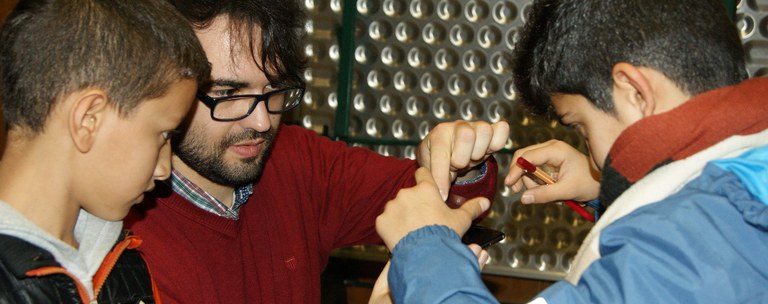
© DPG 2015
Physics for refugees
Physics for Refugees will be launched in 2015 and aims to give children and young people in refugee centres, reception centres and schools throughout Germany an understanding of physics in a playful way and by means of simple experimental tasks. The three-year funding of the project by the Federal Ministry of Education and Research (BMBF) will expire in May 2018, but the project will be continued partly on its own.
-
2015
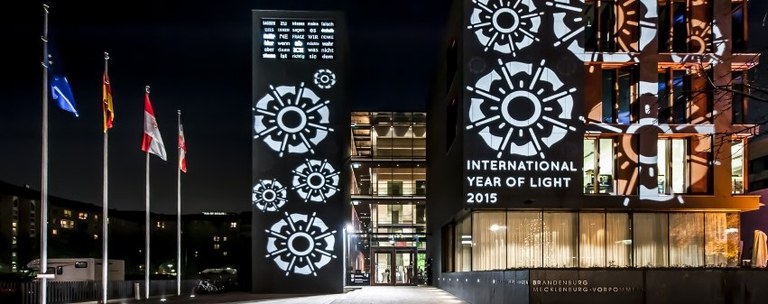
© DPG / ZAB / Marschalsky 2015
International Year of Light
The UN General Assembly proclaims 2015 as the International Year of Light and Light-Based Technologies, which is intended to commemorate the importance of light as an elementary prerequisite for life for humans, animals and plants and therefore also as a central component of science and culture. The DPG is in charge of coordinating activities in Germany.
-
2009
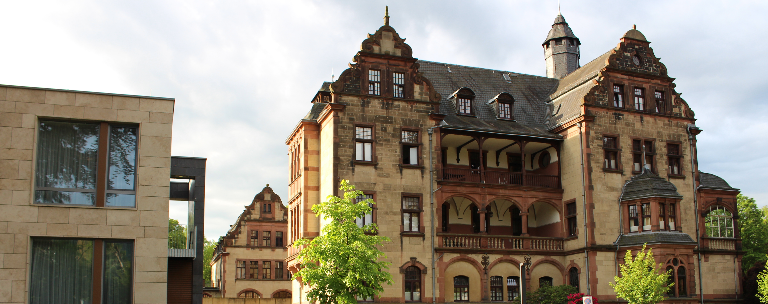
© DPG 2017
Long-term future secured at the Physikzentrum Bad Honnef
After the Physikzentrum Bad Honnef (PBH) has been a place of scientific exchange since 1976 and has been home to the DPG office since 1977, the DPG concluded a contract with the University of Bonn in 2009 for the use of the Physikzentrum Bad Honnef until 2039. On the basis of this new contractual foundation, the DPG will carry out extensive renovations of the historic abbey building between 2010 and 2012. In 2015, the Wilhelm und Else Heraeus Foundation will inaugurate a guest house with an underground car park in the PBH garden.
-
2008
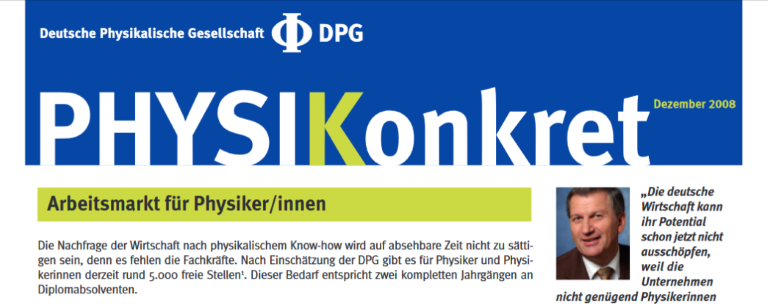
Physikkonkret
Gerd Litfin's presidency publishes the first Physikkonkret on the "Labour Market for Physicists". The information sheet will from now on inform political decision-makers about important background information on current topics in the natural sciences. Over the years, schools have also developed a great interest in the information sheets, as these compact editions are good for teaching in schools.
-
2008
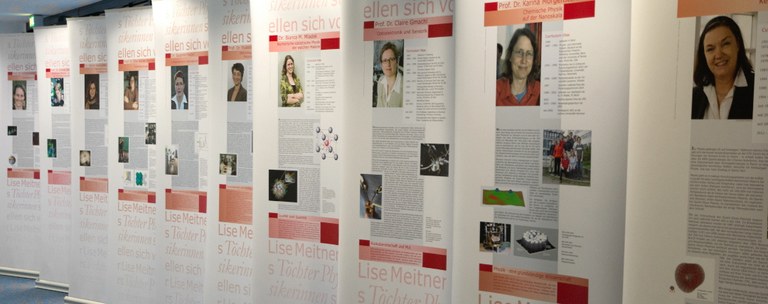
© DPG / Bauke 2015
Lise-Meitner Lectures
In honour of Lise-Meitner, the Austrian Physical Society (ÖPG) and the DPG are launching the Lise-Meitner-Lectures, which will take place for the first time in 2008. The annually changing speakers of the lecture series present their professional careers and research fields and thus help to inspire young women in particular to become interested in physics.
-
2006
Foundation of the jDPG
A new type of DPG association unite for the first time on the basis of a common physical field of interest, but on the basis of their age: The core idea of the young DPG is to make physics, in its exciting, scientific diversity and socially relevant application, tangible beyond the subject matter of the lectures, in exchange with like-minded. Already 10 years after its foundation, the jDPG has well over 3,000 members.
-
2006
Assistants to the Executive Board for the Office
During his presidency (2004 - 2006), Knut Urban and Managing Director Bernhard Nunner are pursuing the plan to create more professional structures for the DPG. The office will be significantly expanded in terms of personnel in order to support the honorary Executive Board members with assistants. The first assistant will be hired on 15 March 2006 and a total of eight assistants will work for the DPG in Bad Honnef and Berlin in 2020.
-
2005
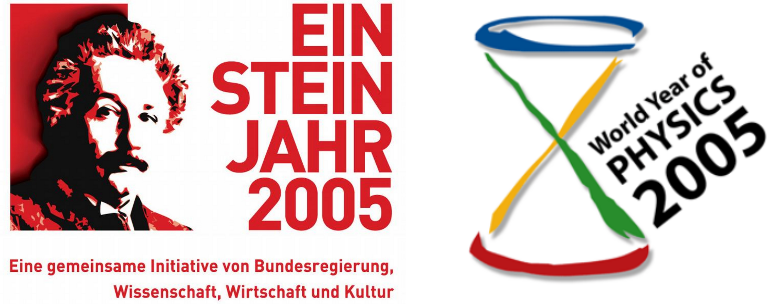
Einstein Year
On the occasion of the 100th anniversary of Einstein's "annus mirabilis", UNESCO proclaimed 2005 the International Year of Physics. In Germany, the Einstein Year, will be proclaimed, the central event of the year for the DPG. The annual conference will take place in Berlin under the motto "Physics since Einstein". The conference not only exceeds expectations in terms of the number of participants, but also in terms of public and political resonance. In this context a one-hour meeting with Angela Merkel, the former leader of the opposition in the Bundestag, will also take place, during which DPG President Knut Urban will present her with Einstein's publications in facsimile.
-
2003
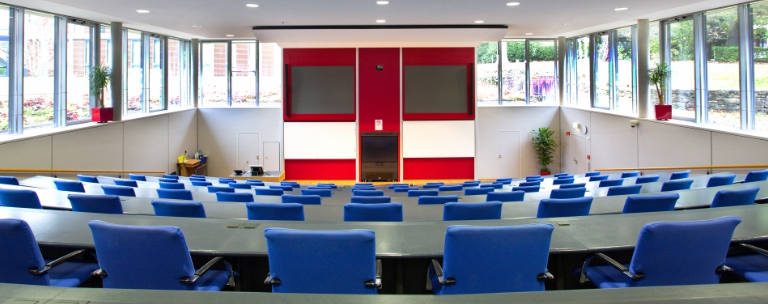
© DPG / Danetzki 2018
Inauguration of the Heraeus lecture hall
Due to the continued high capacity utilization of the Physikzentrum Bad Honnef, a new lecture hall is built next to the building. The new Heraeus auditorium will be inaugurated in 2003.
-
2003

Weltderphysik.de goes online
The online platform weltderphysik.de will be presented to the public for the first time in March 2003 at the DPG Spring Conference in Hannover. This was preceded by the great success of the first scientific year "Year of Physics", which prompted the BMBF and the DPG to further promote the growing interest in physics with a new Internet portal. Since 2005, the Internet portal has also been accessible to all citizens. This means that visitors with visual or motor impairments can also explore the world of physics and make use of the numerous information and research sources.
-
2001
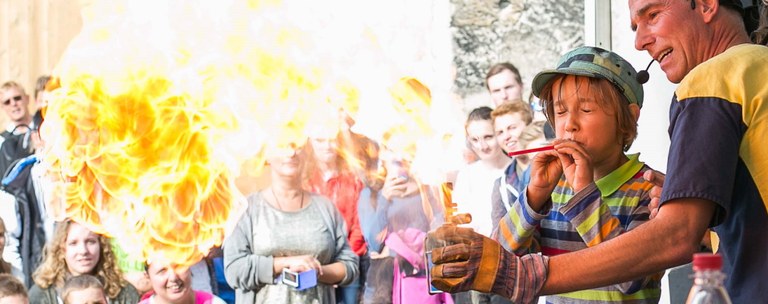
© Highlights der Physik
Highlights of Physics
Due to the great success, the so-called Highlights of Physics will take place annually from 2001 onwards. The science festival is organised by the BMBF, the DPG and the host university and is held year after year in a different city.
-
2000
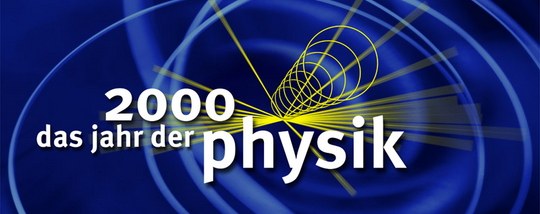
Year of Physics
As part of the "Science in Dialogue" initiative, the Federal Ministry of Education and Research (BMBF) is declaring the Year of Physics the first Year of Science. The aim is to make the abstract topic of physics accessible to many people and to arouse the interest of young people and adults in this fascinating field of the natural sciences. The kick-off event will take place on 18 January 2000 at the Technical University of Berlin. The whole year is accompanied by a lot of public meetings.
-
2000
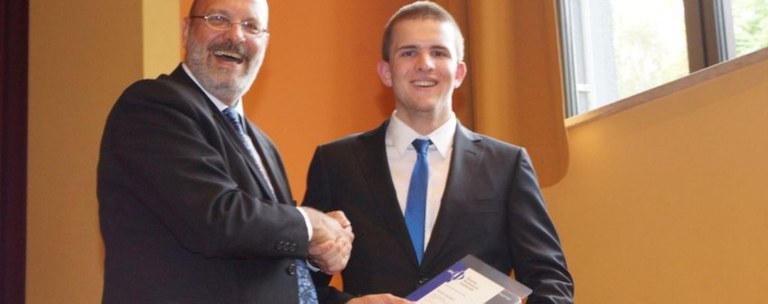
© DPG
First year of DPG Graduation Award
The new DPG Graduation Award marks the beginning of a period of steady membership growth. Nominated by their teachers, high school graduates who have achieved outstanding results in the field of physics are awarded with the prize. In addition to a certificate and, in some cases, a book prize, the award also includes a one-year free membership in the DPG. As a result, the number of DPG members continues to grow.
-
2000
Lectures in honour of Max von Laue
The DPG establishes a series of lectures in honour of Max von Laue. The physicist and Nobel Prize winner, who was President of the German Physical Society from 1931 to 1933, made an extraordinary contribution to human rights between 1933 and 1945. The Max-von-Laue lectures take place within the framework of the DPG annual conferences and are held by scientists who are characterized by strong political or social commitment.
-
2000
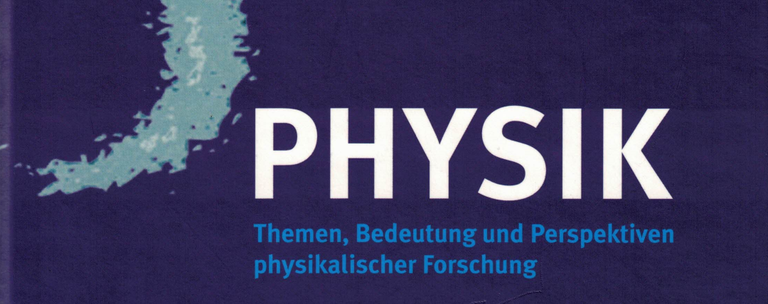
Memorandum
On the threshold of the third millennium, the DPG publishes a memorandum entitled "Physik: Themen, Bedeutung und Perspektiven physikalischer Forschung" (Physics: Topics, Significance and Perspectives of Physical Research). It is intended to make clear the significance and fascination of physics, but also to encourage reflection on its consequences. In this publication, physicists draw a picture of the current state as well as the perspectives, opportunities and risks of physical research.
-
14. January 1999
More public relations
After extensive discussion, the Council of Directors commissioned an agency in 1999 to create a better awareness of physics in society. The agency is particularly needed for the preparation and implementation of the Year of Physics, which will take place in 2000. It will support the DPG in all areas of public relations from this point on and until 2011.
-
17. December 1998
Foundation of the New Journal of Physics
The first article appears in the Open Access journal New Journal of Physics, which was jointly founded by the DPG and the Institute of Physics (IOP) in 1998 and publishes research papers from all areas of physics.
-
14. November 1998
Statement on energy policy
The Council adopts a statement on energy policy and the planned phase-out of nuclear energy in which the DPG welcomes the intention of the Federal Government to forcefully introduce renewable energy sources and promote energy saving. Due to the global significance of climate protection, however, it considers the continued use of nuclear energy to be indispensable for the time being and therefore attaches importance to the consistent further development of nuclear safety technology.
-
1995
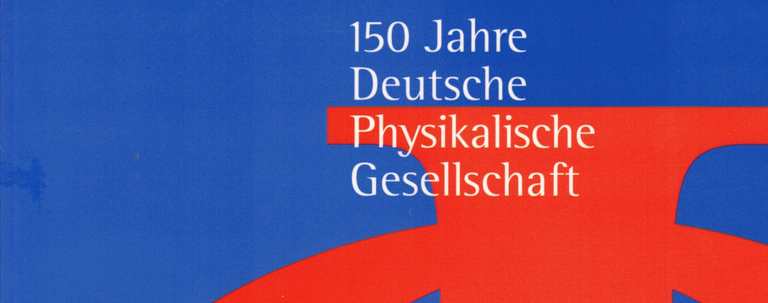
Big anniversary with commemorative publication
On the occasion of the 150th anniversary of the DPG, a commemorative publication will be published which comprehensively presents the entire history of the DPG. Publisher is Theo Mayer-Kuckuk. The lack of a central archive is perceived as a major shortcoming in the work on the commemorative publication. This leads to the appointment of an archivist in 1996 who sets up and sets up the archive.
-
1992
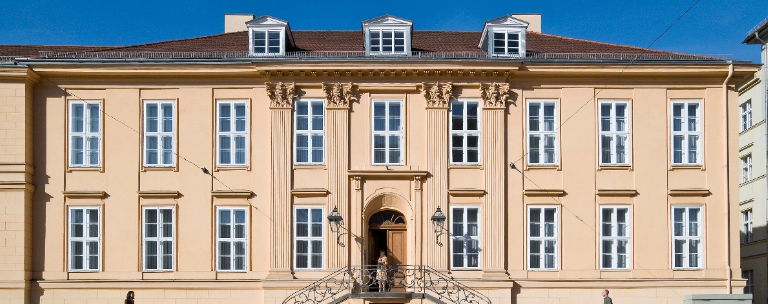
© DPG 2008
Use of the Magnus-Haus Berlin
DPG concludes a contract with the City of Berlin for the use of the Magnus-Haus Berlin. The DPG then begins the renovation of the building, which will be reopened on 18 November 1994 after the work has been completed.
After the building was sold to Siemens Real Estate by the Liegenschaftsfonds Berlin in 2001, a legal dispute arises. In 2004, the Berlin Regional Court ruled that the contract of use was unchanged and that, despite the sale, DPG could continue to use the Magnus-Haus Berlin "as an owner" without rent and sublet parts of the building. However, the contract of use can be terminated in 2024.
-
20. November 1990
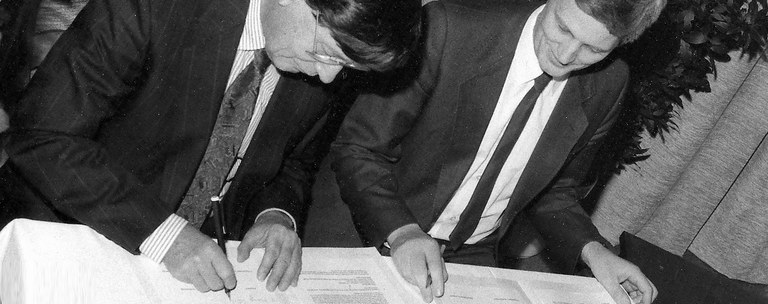
© DPG Archiv
Reunion
A good year after the fall of the Berlin Wall, the Physical Society of the DDR (PG-DDR) and the German Physical Society (DPG) celebrated their merger to the present DPG in Magnus-Haus Berlin. Twenty years to the day, the DPG is holding an anniversary celebration at the same location to remember this exciting time and its effects on the entire scientific landscape with a panel discussion and two lectures.
-
1989
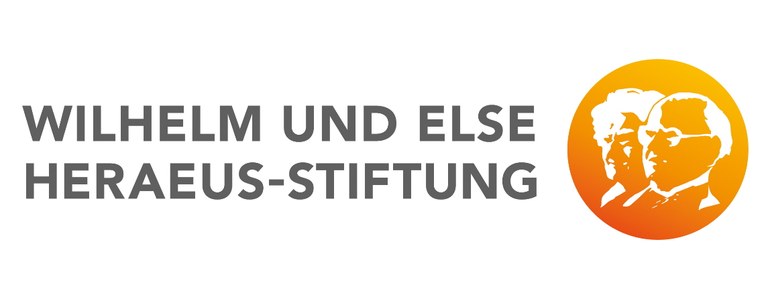
WE-Heraeus funding programme of the DPG for participation in conferences
1989 marked the beginning of major changes in Central and Eastern Europe. When the inner-German border opened at the beginning of November, the DPG reacted with immediate measures: Among other things, benefits and facilities were offered for settlers and for visitors from the DDR in order to enable them to participate in the activities of the DPG. Many thanks to the Wilhelm und Else Heraeus Foundation for their generous support of young scientists through their Communication Programme.
-
1986
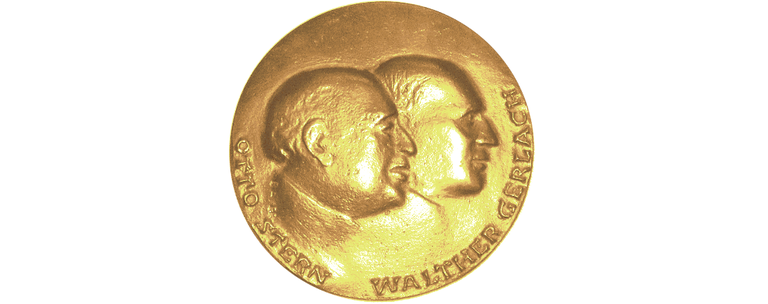
Stern Gerlach Medal
The Stern Gerlach Medal is the DPG's highest award for outstanding achievements in the field of experimental physics. It was donated by the DPG as a prize in 1986 and converted into a medal in 1992. The award was first presented to Erich Gerdau in 1988.
-
9. July 1985
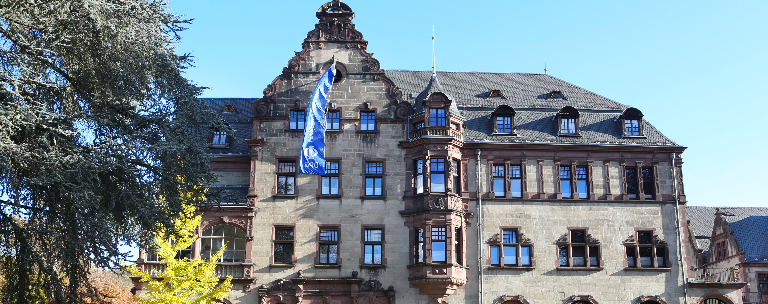
© DPG / Danetzki 2018
Sponsorship of the Physics Center Bad Honnef
In 1985 the DPG takes over the administration of the Physics Centre Bad Honnef. Eberhard Freiherr von Medem becomes chairman of the board of trustees.. Theo Mayer-Kuckuk is appointed Scientific Director by the DPG President at the suggestion of the University of Bonn. The day-to-day business is still in the hands of the proven scientific secretary Joachim Debrus. It is above all thanks to him, together with the management of the Physikzentrum Bad Honnef, that the house continues to be popular and used to capacity as a conference venue: In 1986, 68 seminars, some of them lasting several days, were held with a total of 2,500 participants.
-
1981
Transformation of the Council
The Council becomes a parliament of the DPG. The basic idea is to establish a representative body of the DPG. It should make important decisions for the association, such as the election of the future president. Previously, these decisions were made within the framework of the general meeting at meetings at which no representative group of association members met, depending on the venue.
-
7. November 1980
1st Day of the DPG
On 7 and 8 November 1980, the Day of the DPG will take place for the first time at the Physikzentrum Bad Honnef. In addition to the Executive Board and Council, other decision-making bodies of the association also take part. The highlight will be a discussion event on the future perspectives of physics, at which the development trends in the various areas of science will be discussed. The meetings of the DPG had previously been moved from autumn to spring in order to enable all DPG committees to hold this meeting.
-
13. July 1976
Foundation of DPG-GmbH
The essential parts of the DPG e. V.'s business operations are outsourced to a GmbH. The sole shareholder of "DPG-Kongreß-, Ausstellungs- und Verwaltungsgesellschaft mit beschränkter Haftung", or "DPG-GmbH" for short, is the association. The objects of the company are services in the field of administration and advertising, the organisation and realisation of congresses and exhibitions as well as room rental in the Magnus-Haus Berlin.
-
12. June 1976
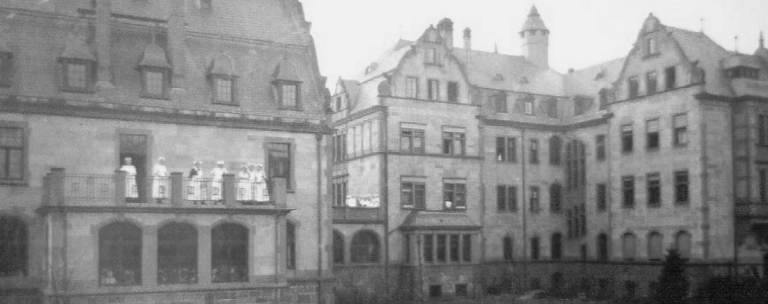
Foundation of the Physikzentrum Bad Honnef
The Hölterhoffstift, built in 1906, opened its Physikzentrum Bad Honnef on 12 June 1976. At the beginning of September 1977, the DPG office moves into several rooms there.
-
1972
Full-time office
In 1972 a full-time office was established in Bonn-Bad Godesberg to simplify the administration of association members and the organisation of association activities. This work had previously been done on an honorary basis. Wolfgang Heinicke (1972 – 1985 and 1989 – 1994) was hired as the first managing director. After him, Rainer Poerschke (1985 – 1989), Volker Häselbarth (1994 – 2004) and Bernhard Nunner (from 2004) are active in this position.
-
1971

Do people make the weather?
At a press conference held in 1971 as part of the 36th Physicists' Conference, the Effect of human activity on the climate was discussed. In the years that followed, this topic came to the fore and culminated in 1985 in the DPG's appeal: "Warning of imminent global climate change by humans".
-
11. October 1963
Reestablishment of the DPG
The Association of German Physical Societies was transformed into a German Physical Society with 3,800 members at that time. Karl-Heinrich Riewe, who had already worked out the new statutes as secretary, becomes managing director in 1963.
-
1961
10th Colloque Ampère in Leipzig
In September the Physikalische Gesellschaft in der DDR (PGDDR) organizes a successful international conference. 200 scientists from 17 countries take part. The German physicists boycotted the event due to the recent construction of the wall.
-
24. April 1958
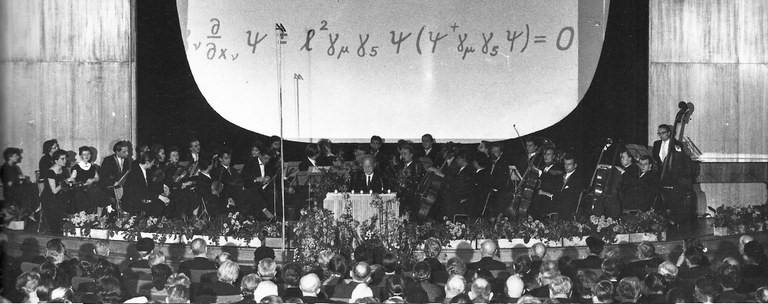
© DPG Archiv
Max Planck Celebration
The 100th birthday of Max Planck is commemorated by two festive events in Berlin: on 25 April in the West Berlin Congress Hall and the day before in the East Berlin State Opera as well as in the Magnus House in Berlin, which on this occasion will be handed over to the sponsorship of the Physical Society in the DDR.
-
1955
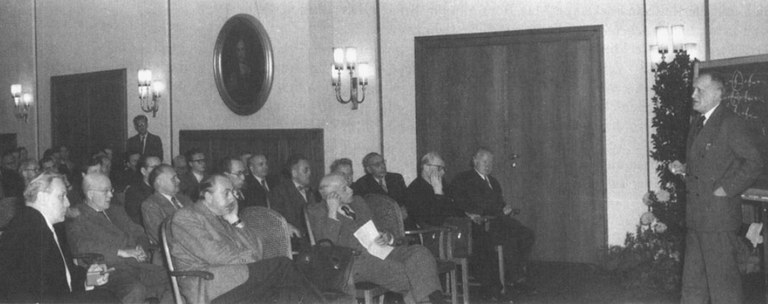
© DPG Archiv
Einstein celebration in Berlin
On the occasion of the 50th anniversary of Einstein's three famous publications in 1905, the Physikalische Gesellschaft zu Berlin (PGzB) and the Physikalische Gesellschaft in der DDR (PGDDR) organize an Einstein celebration in Berlin. Speakers will be Max Born (1882 – 1970) on 18 March in West Berlin and Leopold Infeld (1898 – 1968) on 19 March in East Berlin.
-
1954
International Physics
In 1954, Germany became a member of the International Union of Pure and Applied Physics (IUPAP), which was founded in Brussels in 1922 as an international organization for the promotion and unification of physics. The DPG represents Germany in the IUPAP.
A few years later, in 1968, the European Physical Society (EPS) was founded as an umbrella organization for physics societies in Europe. The DPG is one of the founding members.
-
26. September 1952
Foundation of the Physical Society in the DDR
After initially only regional colloquia and conferences had taken place, a Physical Society was again founded in the DDR on the initiative of Friedrich Möglich (1902 – 1957) and Robert Rompe (1905 – 1993).
-
13. October 1950
Merger
In Bad Nauheim, the Verband Deutscher Physikalischer Gesellschaften (German Association of Physical Societies - VDPG) is founded, which represents the individual regional associations in a uniform structure. Hermann Ebert, who works at the Physikalisch-Technische Bundesanstalt, becomes the managing director.
-
1948
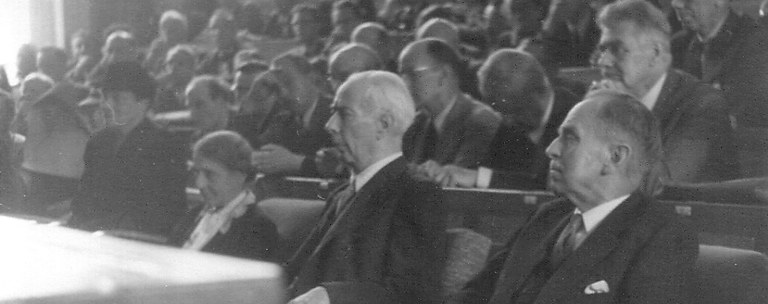
© DPG Archiv
Lise Meitner and Otto Hahn
Lise Meitner (member since December 13, 1907) and Otto Hahn (member since January 8, 1909) are elected honorary members in Clausthal on September 10, 1948. During the Physicists' Conference in Bonn in September 1949 they are awarded the Max Planck Medal in the presence of the Federal President Theodor Heuss. Meitner is the first honorary female member and the first recipient of the Max Planck Medal.
-
1946
New beginning
In October the first physicists' conference after the war takes place in Göttingen. The first regional companies are founded: in August 1946 in Württemberg-Baden, in October the "DPG in the British Zone", in July 1947 in Hesse, in December 1947 in Bavaria, in April 1948 in Rhineland-Palatinate and on 7 December 1949 the Physikalische Gesellschaft zu Berlin (PGzB).
-
8. May 1945
Dissolution of all association structures
Shortly after the end of the war, all association structures were dissolved in accordance with the Allied Control Council Act.
The National Socialists took power in 1933, which in the following years led to the expulsion of renowned Jewish scientists and a reorientation of research towards military applications. In the book Physiker zwischen Autonomie und Anpassung - Die Deutsche Physikalische Gesellschaft im Dritten Reich, published in 2006, the DPG examines its role in these politically turbulent times.
-
18. January 1945
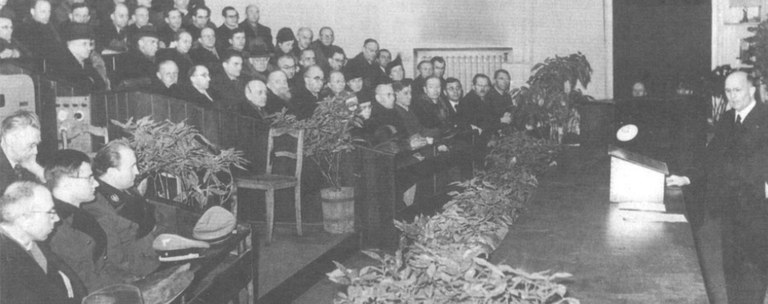
© DPG Archiv
Hundred Year Celebration
Shortly before the end of the war, the DPG celebrates its 100th anniversary. Festive lectures are given by Eberhard Buchwald and Hans Schimank, among others, and Ernst Brüche shows "Film Memories from the DPG Conferences".
⇒ Report on the centenary of the DPG in the "Physikalische Blätter" (german)
-
1944

Foundation of the "Physikalische Blätter"
Ernst Brüche (1900 – 1985) founds a new journal, of which he remains editor until 1972 and which becomes in 1976 member journal and official organ of the DPG. In 2001, the Physikalische Blätter were renamed for legal publishing reasons. The journal is now called Physik Journal. After a complete retrodigitisation in 2013, all volumes of the Physikalischen Blätter are freely available on the Web.
-
9. December 1938
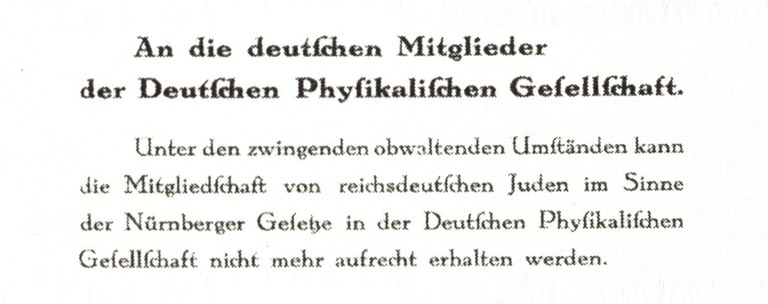
Aryanization
The DPG sends a circular to its remaining Jewish members that membership can no longer be maintained "under the compelling circumstances".
-
23. April 1938
80th birthday of Max Planck
On 23 April 1938, the DPG held a celebration to mark Max Planck's 80th birthday at the Harnack House. The Max Planck Medal is awarded to Louis de Broglie and accepted by the French Ambassador.
Source: Stiftung Deutsches Rundfunkarchiv
-
1933
Adaptation, but no "dictator of physics"
After the National Socialists seized power, Johannes Stark (1874 – 1957) in particular, along with Philipp Lenard, the main representative of the so-called "German Physics", hoped to become a kind of "dictator of physics". Max von Laue, in particular, successfully fought against his efforts to win the DPG presidency. As a result, the industrial physicist Karl Mey is elected chairman. He was succeeded by Jonathan Zenneck (1935 – 1937), Peter Debye (1937 – 1939) and Carl Ramsauer (1939 – 1945).
-
28. June 1929
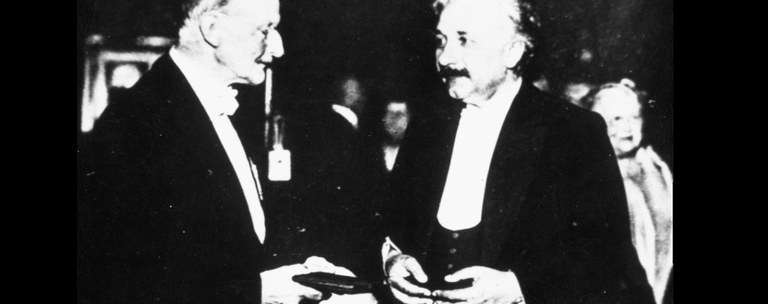
© TECHNOSEUM, Nachlass Brüche
Max Planck Medal
On the day of Planck's golden doctoral anniversary, the first Max Planck Medal is awarded to Max Planck and Albert Einstein. To this day, the medal is regarded as the DPG's most prestigious award for theoretical physics. The list of its bearers is a Who's Who of modern (theoretical) physics.
-
1921
First own conference
In 1921, the first German Physicists' Day takes place in Jena. So far the physicists had their own section at the annual meetings of the Society of German Natural Scientists and Physicians (GDNÄ), which decided in 1920 to meet only every two years. This gives the impetus to hold a "Physicists' Conference" in the interim years, which will be organized from now on together with the German Society for Technical Physics and the German Mathematicians' Association.
-
14. January 1920
Regional structures
The first district association was founded in Bavaria (14 January), followed by Vienna (20 February), which was later expanded to the Austrian district association. Thus the Austrian colleagues renounce the foundation of their own association and instead join the DPG. Hesse follows (24 January 1921) and in Berlin the PGzB is re-established as the district association of the DPG (1 October 1921).
-
1920
The DPG consolidates itself
Since the founding of the DPG, conflicts between the members in and outside Berlin have repeatedly flared up. The latter feel disadvantaged and demand a comprehensive reform of society. Fritz Haber's role on the DPG board also leads to conflicts. With Arnold Sommerfeld as the first non-Berlin chairman (1918 – 1920) and after discussions at the first natural scientist meeting in September 1920, a pacification occurs which leads to Haber's withdrawal from the DPG business. However, the meeting was overshadowed by the dispute between Philipp Lenard and Albert Einstein.
-
1919
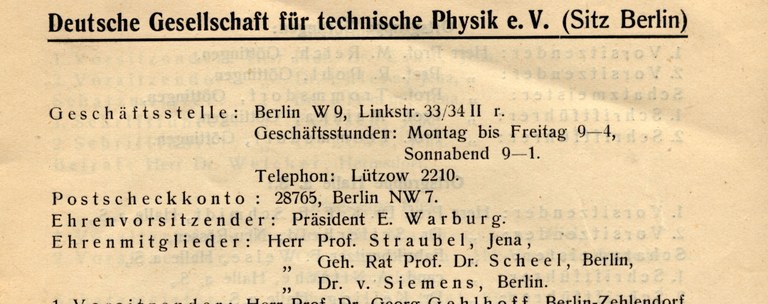
Deutsche Gesellschaft für Technische Physik
Even the physicists working in industry, whose number has risen sharply since the turn of the century, do not feel sufficiently represented. Led by Georg Gehlhoff and Karl Wilhelm Hausser, the Deutsche Gesellschaft für Technische Physik was founded in November 1919 and initially had 125 members. Although originally founded to distinguish it from the DPG, it quickly developed into a constructive cooperation.
-
1914
The First World War and Science
The chemist Fritz Haber (1868-1934) becomes president of the DPG. As a representative of physical chemistry, he worked at the interface of these two sciences and laid the foundations for the Haber-Bosch process for ammonia synthesis, which became of great importance in two respects: for the production of fertilizers and explosives. On the German side, he was the main initiator of the gas war. After the National Socialists seized power, he left Germany and died shortly afterwards in Basel.
A. Schirrmacher, Die Physik im Großen Krieg, Physik Journal, Juli 2014
H.-G. Bartel, Ein Geheimrat im Militärdienst - Physik Journal, Juli 2014 -
7. November 1913
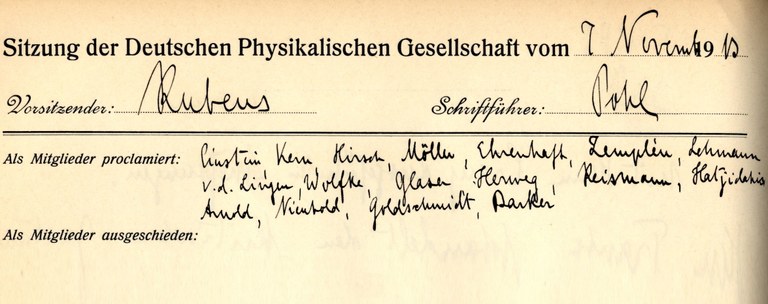
Einstein becomes DPG member
Albert Einstein, already world-famous for founding the theory of relativity, comes to Berlin as a salaried member of the Prussian Academy of Sciences and becomes a member of the DPG. In appearance and political thinking for his time rather unorthodox, he took over the chairmanship of the DPG from 1916 to 1918.
-
1905
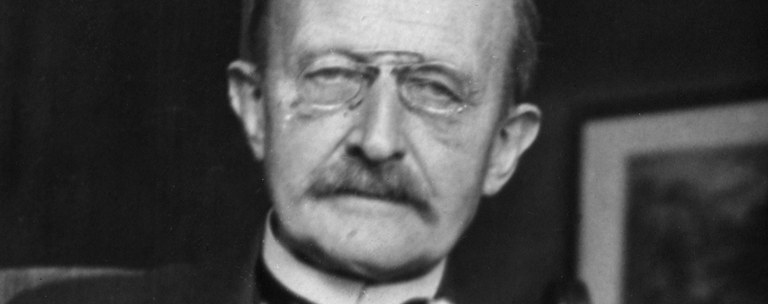
© Archiv der Max-Planck-Gesellschaft, Berlin-Dahlem
"Hardly a session I've missed"
Max Planck (1858-1947) becomes chairman. Coming from Kiel to Berlin, he became a member of the Society in 1889 and was already active as an accounting officer on the Board from 1892.
No other physicist has had such a long and decisive influence on the fate of the society.
-
10. December 1901
First (Physics) Nobel Prize
Nobel Prizes are awarded for the first time in Stockholm. The Nobel Prize in Physics is awarded to Wilhelm Conrad Röntgen (1845 - 1923) for his discovery of X-rays six years earlier. Röntgen had been a member of the DPG since 1899, and in 1919 he was awarded honorary membership.
-
14. December 1900
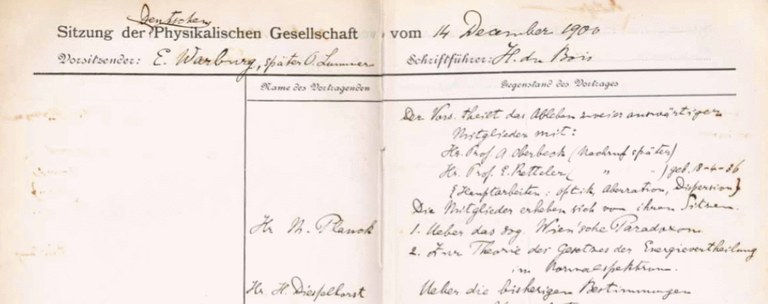
The Birth Hour of Quantum Theory
At the meeting of the DPG on 14 December 1900, Max Planck gave his famous lecture "Zur Theorie des Gesetzes der Energievertheilung im Normalspektrum" ("On the theory of the law of energy distribution in the normal spectrum"), thereby justifying quantum theory.
-
1900
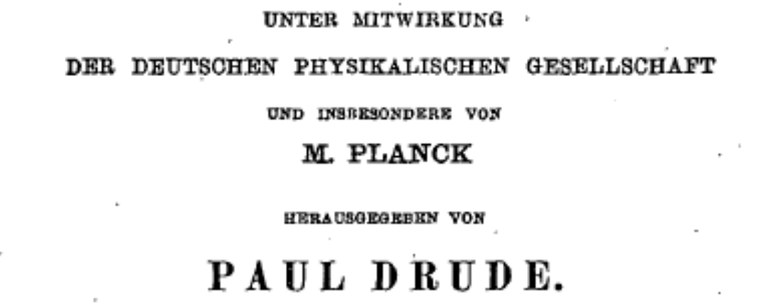
Annalen der Physik
The "Annalen der Physik" is an important physics journal that has been published since 1799. Since 1900 the journal has been published in cooperation with the German Physical Society. Since 1906, Max Planck, among others, takes over the editorship, which he exercises until the end of his life.
-
3. February 1899
First female member
Elsa Neumann (1872-1902) received her doctorate in 1899 from Emil Warburg on "The polarization capacity of reversible electrodes" and was the first woman to be admitted to the DPG.
-
1899
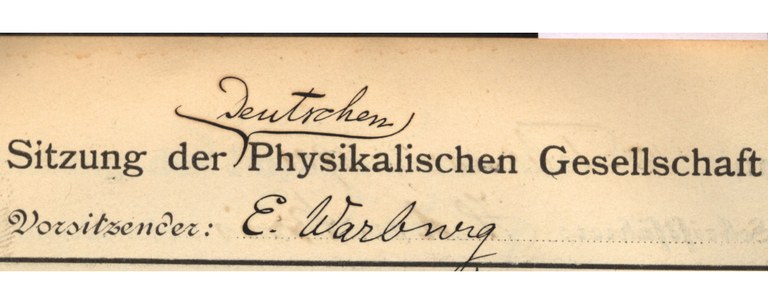
From the Berlin to the German Physical Society
The number of "foreign" members is constantly increasing. These members, who do not live in Berlin, feel increasingly dominated by the Berlin members and strive for greater influence. An outward sign of these efforts is the renaming of the Society, whose new statutes have been drafted by Max Planck. Emil Warburg remains chairman.
-
1897
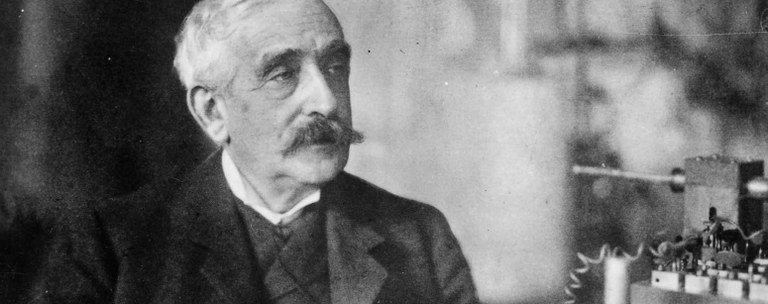
Physicist and Science Manager
Emil Warburg (1846-1931) became chairman and held this position until 1905. He was one of the most influential physicists of his time and in 1895 was appointed to the most prestigious university position in Berlin. In 1905 he became president of the Physikalisch-Technische Reichsanstalt. The Marian-Smoluchowski-Emil-Warburg Prize, awarded since 1997, commemorates him.
-
4. January 1896
The anniversary that has been made up for
The 50th foundation celebration of the Physikalische Gesellschaft zu Berlin is celebrated, among other things with demonstrations in the lecture hall of the Physical Institute of the University, including the almost life-size projection of the daguerreotype of the founding members, of whom only Emil du Bois-Reymond and Gustav Karsten live. Also shown are photographs taken by Wilhelm Röntgen shortly before with the "X-rays" he had discovered.
-
1894
Irreplaceable losses
In this year Heinrich Hertz (1.01.1894), August Kundt (21.05.1894) and Hermann von Helmholtz (8.09.1894) die, which causes the society to cancel the celebration of the 50th anniversary in January 1895. The meteorologist Wilhelm von Bezold becomes chairman.
-
1885
Growth and generation change
In the 40th year of its existence, the Physical Society has 184 members. One year after its foundation there were 53 members. Since then, the proportion of foreign members outside Berlin has increased from about 13 to 42 percent and a younger generation of physicists is pushing forward.
-
1882
Sessions "black on white"
For the first time, the Fortschritte der Physik also includes the conference reports, called "Verhandlungen der Physikalischen Gesellschaft in/zu Berlin". From 1887 these were published as an independent journal.
-
1878
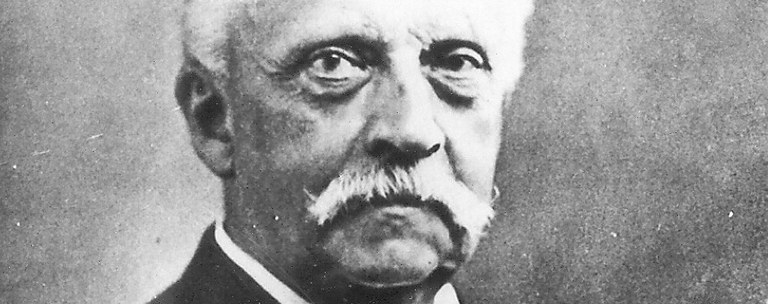
© DPG Archiv
The "Imperial Chancellor of Physics"
Hermann von Helmholtz became chairman and remained so until his death in 1894. As an outstanding personality and versatile researcher, he played a major role in shaping scientific life in the Physical Society and its representation beyond Berlin.
-
1849
Unification and diversity
Gustav Karsten gives a lecture on the unification of measurements, an important example of the countless scientific lectures in the meetings of the Physical Society. These are a mirror of the research of that time and often enough brought it forward through the subsequent discussions.
The lectures cover not only all areas of physics at that time, but also related areas. Important examples before 1900: thermal conductivity of metals (Gustav Heinrich Wiedemann und Rudolph Franz, 1853), second law of thermodynamics (Rudolf Clausius, 1854), brightness measurement of stars (Karl Friedrich Zöllner, 1862), thermodynamic equilibrium (Ludwig Boltzmann, 1872), the experiments of Hertz and Kundt (Hermann von Helmholtz, 1888), blackbody radiation (Wilhelm Wien, 1893), influence of magnetization on light (Zeeman, 1896), energy distribution in the normal spectrum (Max Planck, 1898).
-
1848
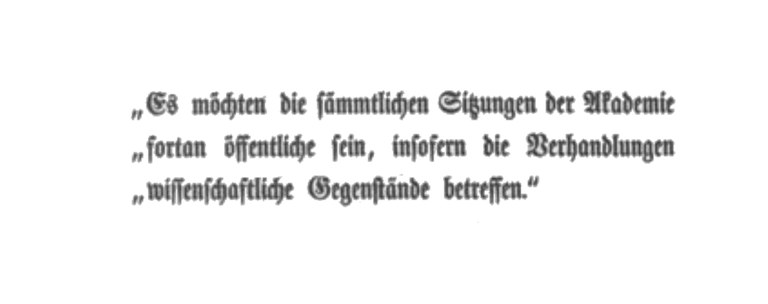
Science for the public
Within the framework of the democratic movement after the revolution of 1848, the Physical Society, in an open letter to the "Königl. Akademie der Wissenschaften zu Berlin" (Royal Academy of Sciences in Berlin), advocates that "all meetings of the Academy should henceforth be open to the public, insofar as the negotiations concern scientific matters".
-
23. July 1847
The law of conservation of energy
Hermann von Helmholtz, one of the most important natural scientists of the 19th century, gives his famous lecture "Ueber das Princip der Erhaltung der Kraft" (published as "Über die Erhaltung der Kraft") at a meeting of the Physikalische Gesellschaft zu Berlin, in which he presents the mathematical formulation of the fundamental law of conservation of energy.
-
1847
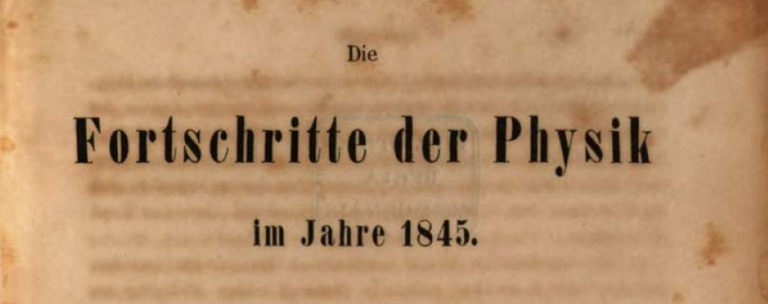
Close knowledge gaps
For the first time the "Fortschritte der Physik" are published, first by Georg Reimer. As an organ of lectures it should offer an overview of the already extensive scientific publications at that time and thus "close a gap especially in physical literature" (Gustav Karsten).
-
14. January 1845
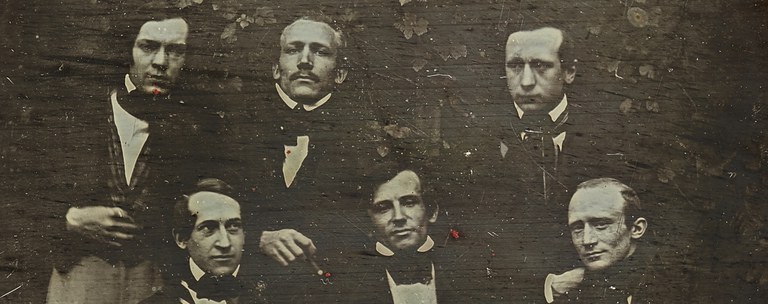
© DPG Archiv
The foundation
Six participants of the physical colloquium established by Gustav Magnus found the Physikalische Gesellschaft zu Berlin (PGzB) as an association, which should be open for all "who are interested in the physical disciplines".
The six founding members, all about 25 years old, are the physicists Gustav Karsten (1820 - 1900), Hermann Knoblauch (1820 - 1895) and Wilhelm von Beetz (1822 - 1886), the physicians and physiologists Emil du Bois-Reymond (1818 - 1896) and Ernst Wilhelm von Brücke (1819 - 1892) as well as the chemist Wilhelm Heinrich Heintz (1817 - 1880).
Gustav Karsten becomes the first chairman.